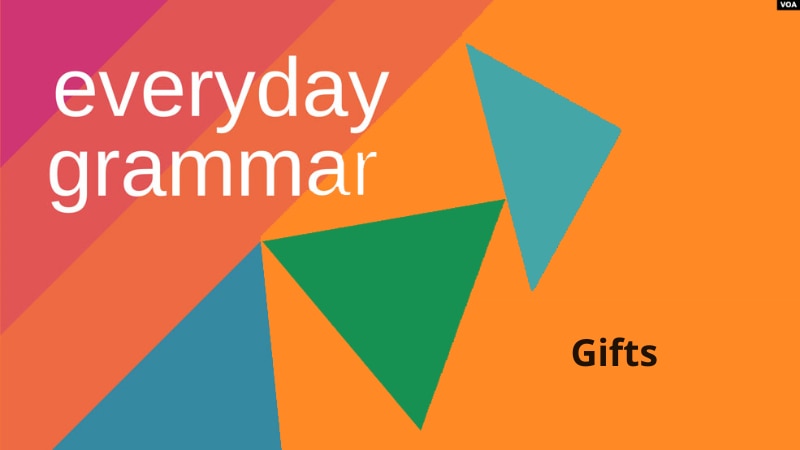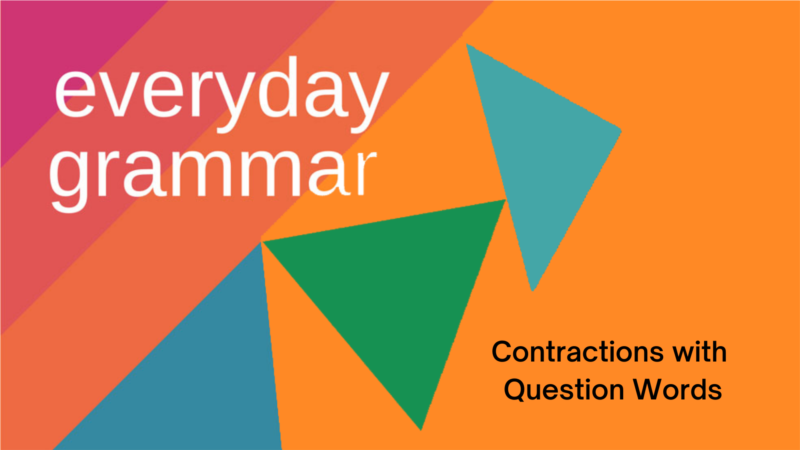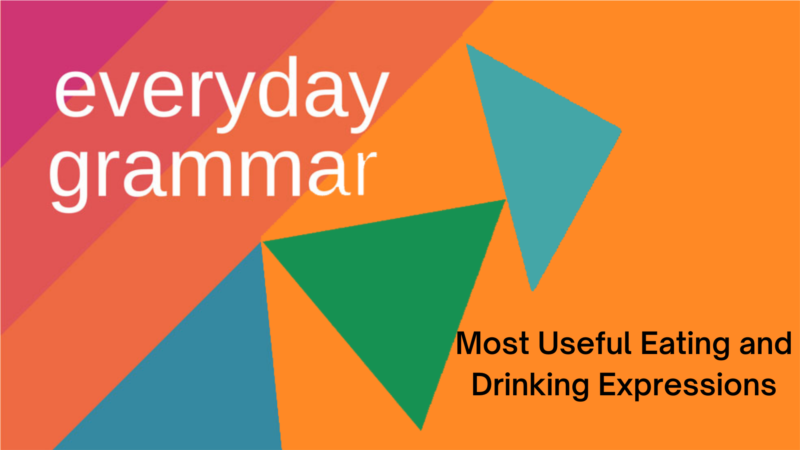
Grammar for Giving Gifts
We are now in between two major American holidays: Thanksgiving and Christmas. This is the most important time of the year for giving gifts.
So, in the holiday spirit, we will explore some common questions that connect to gift giving. Please note that what we explore in this lesson is not connected only to American holidays - it can be used more generally to describe any kind of gift-giving event.
Questions
Imagine you want to get a gift for a family member. You need some advice from another family member or friend. How would you ask for such advice?
That question leads us to the first point in today’s lesson. We are asking about what others want in terms of a gift.
One way to ask this question is by using a “what” question.
This is a kind of open-ended question. In other words, you are asking a question that requires more information than a simple answer of yes or no.
You might use modals or helping verbs in your question. You might also want to report who is going to receive the gift and the occasion that the gift is for.
Let’s take an example to clarify these points.
Imagine you are doing Christmas shopping for your brother. Let’s say his name is Tom. Here is how you might ask another person – say your mother – about a gift for Tom. You could ask: “What would Tom like for Christmas?”
Here, we have the “what” question word along with the modal “would” and then the name Tom followed by the verb “like.” Please note that we also generally use the structure “for + holiday” where the holiday is a noun or noun phrase . In this case, the holiday is Christmas.
Another way you might ask the question is with the helping verb “do.” The basic structure is the same as our example containing “would” and “like.” But in this question, we replace those words with “do” and “want.” So, you might ask, “What does Tom want for Christmas?”
Please note that the two questions we have discussed so far have almost the same meaning:
What would Tom like for Christmas?
And
What does Tom want for Christmas?
Locations and nouns
Now let us consider questions about places to get gifts. In such questions, we generally use the question word “where” along with the modal “can.” We often use “find” as the main verb. And we often use nouns with similar meanings such as “sales,” “deals,” or “specials.”
Let’s explore three examples, all of which have a similar meaning.
Where can I find holiday sales?
Where can I find holiday deals?
Where can I find holiday specials?
Note that the question word always comes first. The modal “can” comes between the question word and the subject “I.”
And then we have the main verb “find” along with the noun phrases such as holiday specials, holiday deals, and so on.
Once you find the correct location, then discussions about price might come. We explored that subject in an earlier lesson , which you can find in the Everyday Grammar area of our website, learningenglish.voanews.com.
Quiz
Let’s take some time to work with these ideas. Imagine you are considering what gift to get for your mother for her birthday. How might you ask another family member about what to get?
Pause the audio to consider your answer.
Here are two possible answers:
What would Mom like for her birthday?
Or
What does Mom want for her birthday?
In our answers, we used the question word “what.” Either the structure “...would Mom like...” or “...does Mom want...” will work.
What is important is that after the short word “for,” we have the noun phrase “her birthday.” This noun phrase provides information that makes the question clearer.
Future lessons will explore gift giving in greater detail.
I’m John Russell.
John Russell wrote this lesson for VOA Learning English.
Words in This Story
modal – n. a verb (such as can, could, shall, should, ought to, will, or would) that is usually used with another verb to express ideas such as possibility, necessity, and permission
phrase – n. a group of two or more words that express an idea but do not form a complete sentence
Share this article:
This article uses material from the VOA Learning English article, and is in public domain. Images and videos are available under their respective licenses.


